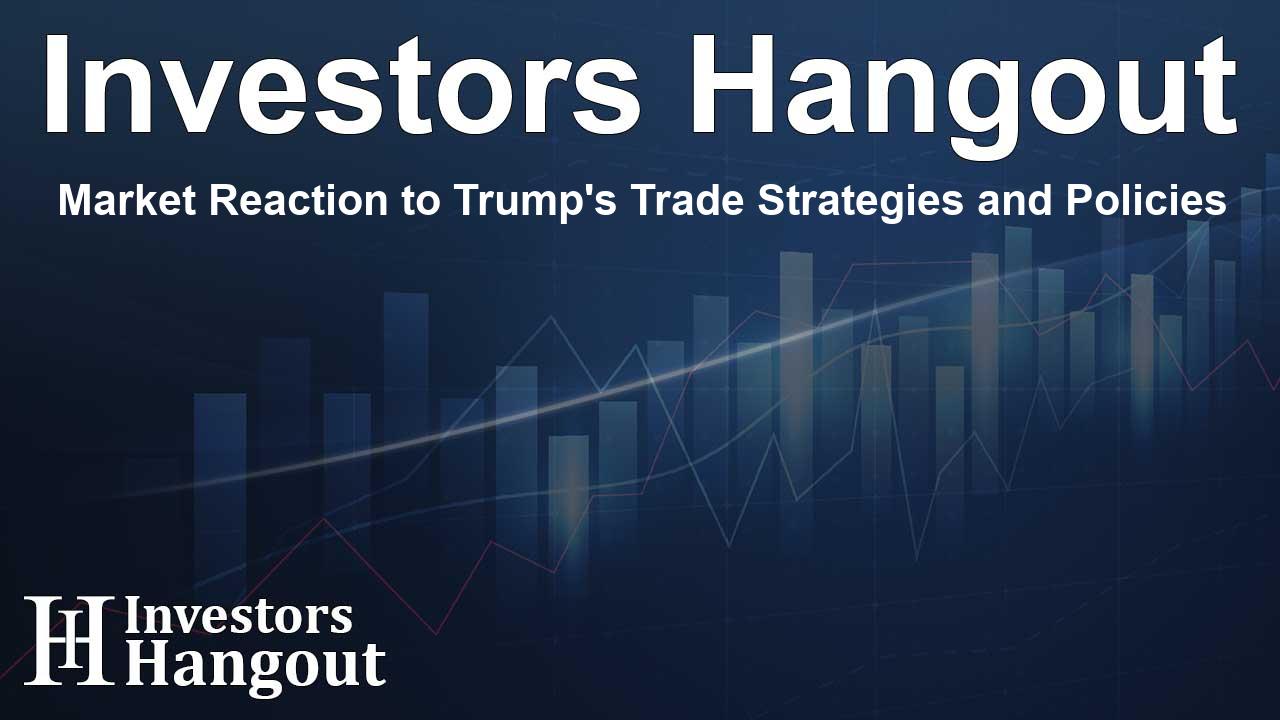Market Reaction to Trump's Trade Strategies and Policies

Understanding Investors' Strategies Ahead of Trump's Tariffs
As Donald Trump prepares to assume the presidency once again, investors are adapting their strategies to better navigate the potential impacts of his trade policies. The announcement of new tariffs on prominent trading partners has sparked renewed interest in the trade war playbooks long set aside. The confidence is evident as traders believe their portfolios are now better equipped to handle the unpredictability that characterized Trump's first term.
The Immediate Impact of Tariff Announcements
Upon Trump's declarations of imposing tariffs on Mexico, Canada, and China, a swift reaction was observed in the currency markets. The dollar surged, responding to Trump's assertive stance on international trade. The peso and Canadian dollar, on the other hand, experienced declines almost instantly after Trump's posts appeared on social media. Investors seem to have honed their skills in managing the repercussions of Trump's negotiation tactics.
Market Reactions to Currency Fluctuations
The announcement of a 25% tariff on imports from Mexico and Canada, alongside a 10% tariff on Chinese goods, undoubtedly sent shockwaves through the market. The dollar witnessed a remarkable gain, climbing over 2% against the Mexican peso and around 1.4% against the Canadian dollar before stabilizing. Although the immediate reaction was noteworthy, markets seemed to believe that Trump's promises would not dramatically alter his approach to international trade.
Analysis from Financial Experts
Financial experts express cautious optimism about the effects of Trump's policies. George Boubouras, head of research at K2 Asset Management, noted that the rhetoric signifies an unwillingness to see manufacturing relocate from the Chinese borders to the U.S. and its neighboring countries. This could imply a potentially complex negotiation phase ahead.
The Long-term Outlook for Trade Relationships
With Trump’s approach to tariffs anticipated to ignite more than just immediate market shifts, it becomes essential for companies to reevaluate their strategies. The auto industry, particularly those with significant production facilities in Mexico, was among the first to feel the pressure, witnessing drops in stock prices as uncertainty rose. Despite this, many industry players remain hopeful for a balanced negotiation package.
China's Response to U.S. Tariff Proposals
The global landscape is shifting, and countries like China are preparing for the changes by reinforcing their import and self-reliance strategies. Observing Trump's tactics from his previous term, stakeholders in China have indicated that they are ready to tackle any new tariffs effectively, making them better prepared for potential trade negotiations.
Perceptions of Trump's Negotiation Style
Trump's negotiation style remains a focal point in discussions, surrounded by elements of unpredictability. Investors are taking heed of this and are now factoring in the possibility of market volatility as a result of Trump's social media communications. As Jason Wong from BNZ remarked, this apprehension is reminiscent of the uncertainty that enveloped the markets back in 2016.
The Emotional Climate of the Financial Markets
Even as traders adapt to Trump’s methods, the emotional atmosphere in financial sectors has become one of caution. With rising currency volatility and heightened concerns expressed by some investors, the market may remain skittish in the lead-up to the official inauguration.
Bracing for the Future: Strategies for Investors
To counteract the looming risks associated with Trump's policies, investors are encouraged to remain vigilant and proactive. Strategies that involve hedging currencies and diversifying portfolios appear to be on the rise as firms brace for potential trade wars and tariff battles. By evaluating possibilities and crafting well-informed strategies, market players aim to safeguard their investments amid anticipated fluctuations.
Frequently Asked Questions
What are Trump's proposed tariffs on trade partners?
Trump plans to impose a 25% tariff on imports from Mexico and Canada and a 10% tax on Chinese goods, aiming to address manufacturing and narcotics concerns.
How did the market react to these announcements?
The dollar strengthened against other currencies, particularly the Mexican peso and Canadian dollar, as investors responded to the news of new tariffs.
What industries are most affected by Trump's trade policies?
The auto industry, especially companies with significant production in Mexico, is facing immediate impacts from the proposed tariffs.
Will tariffs lead to long-term trade changes?
Experts suggest that while immediate reactions may occur, the true impact of tariffs will unfold over time, influencing negotiations and trade relationships.
How can investors prepare for market volatility?
Investors should consider diversifying their portfolios and employing currency hedging strategies to mitigate risks associated with Trump's trade policies.
About Investors Hangout
Investors Hangout is a leading online stock forum for financial discussion and learning, offering a wide range of free tools and resources. It draws in traders of all levels, who exchange market knowledge, investigate trading tactics, and keep an eye on industry developments in real time. Featuring financial articles, stock message boards, quotes, charts, company profiles, and live news updates. Through cooperative learning and a wealth of informational resources, it helps users from novices creating their first portfolios to experts honing their techniques. Join Investors Hangout today: https://investorshangout.com/
Disclaimer: The content of this article is solely for general informational purposes only; it does not represent legal, financial, or investment advice. Investors Hangout does not offer financial advice; the author is not a licensed financial advisor. Consult a qualified advisor before making any financial or investment decisions based on this article. The author's interpretation of publicly available data shapes the opinions presented here; as a result, they should not be taken as advice to purchase, sell, or hold any securities mentioned or any other investments. The author does not guarantee the accuracy, completeness, or timeliness of any material, providing it "as is." Information and market conditions may change; past performance is not indicative of future outcomes. If any of the material offered here is inaccurate, please contact us for corrections.